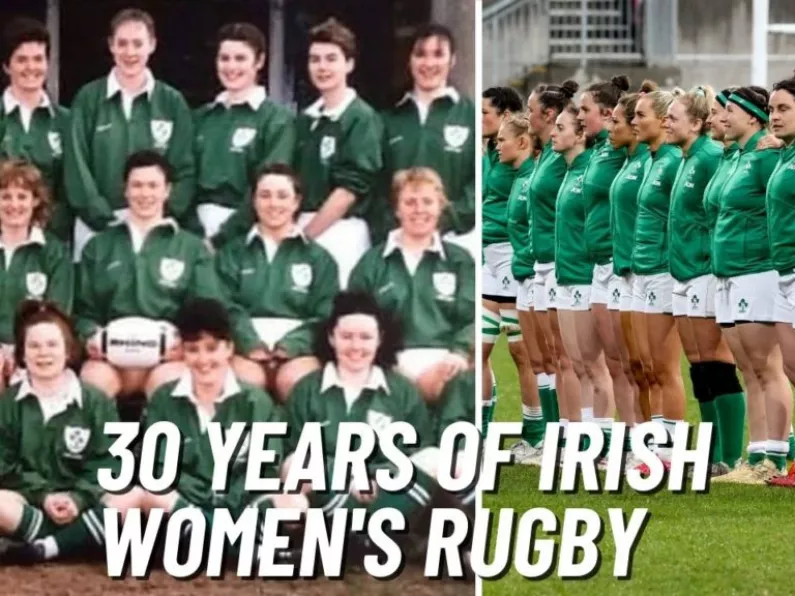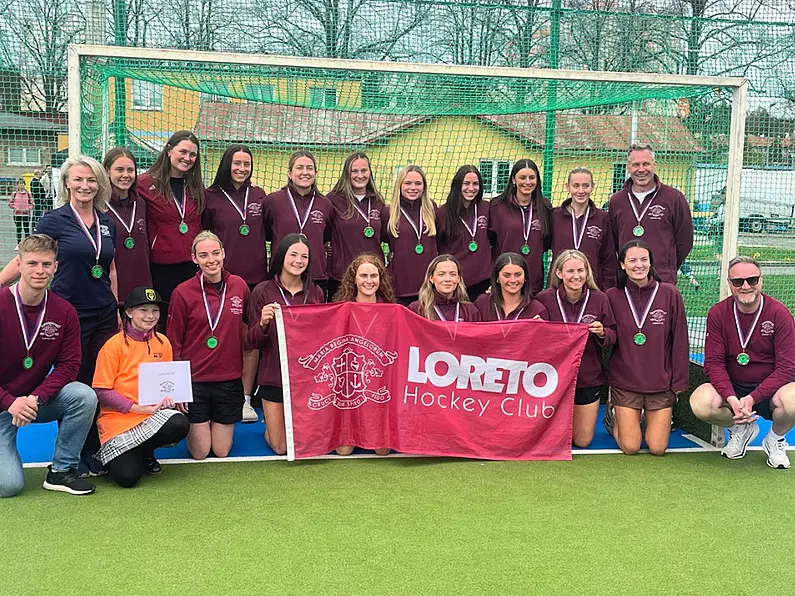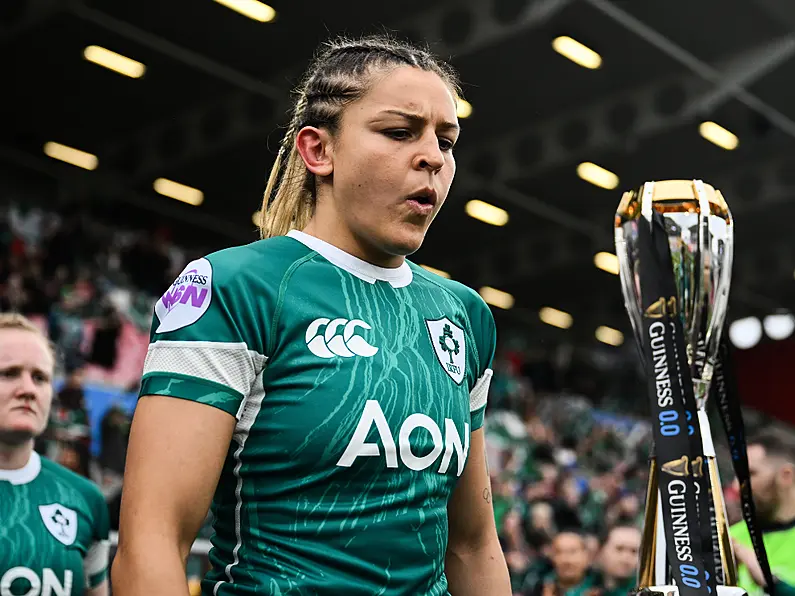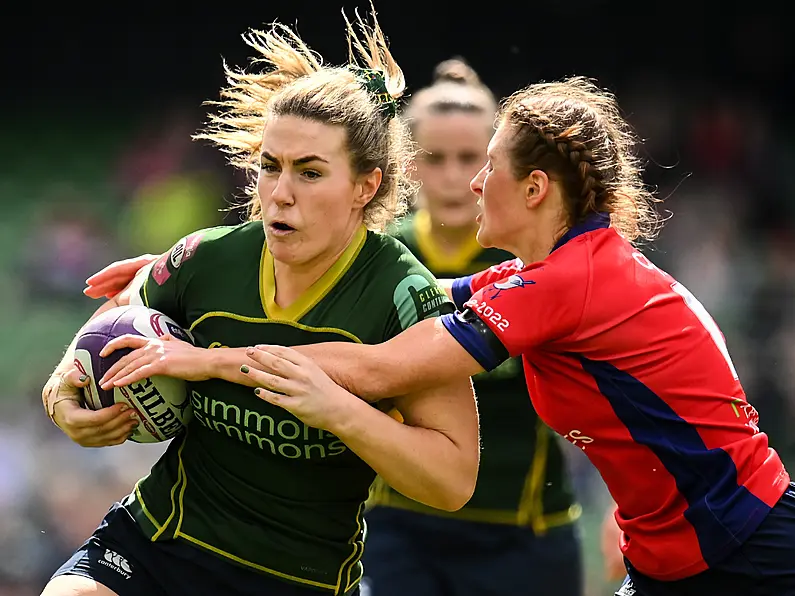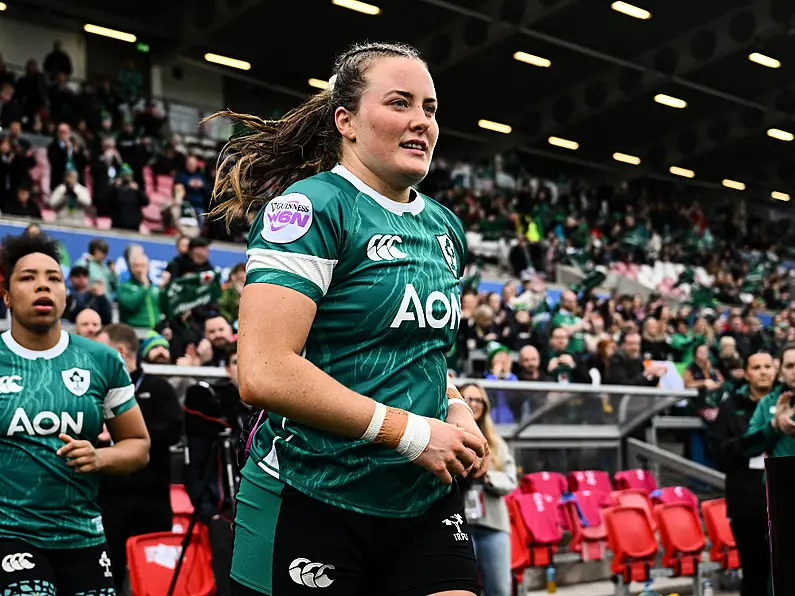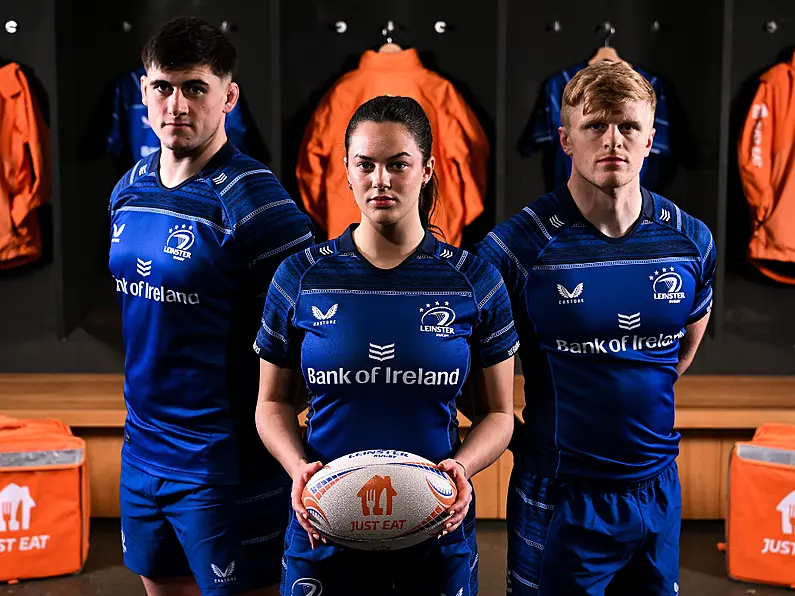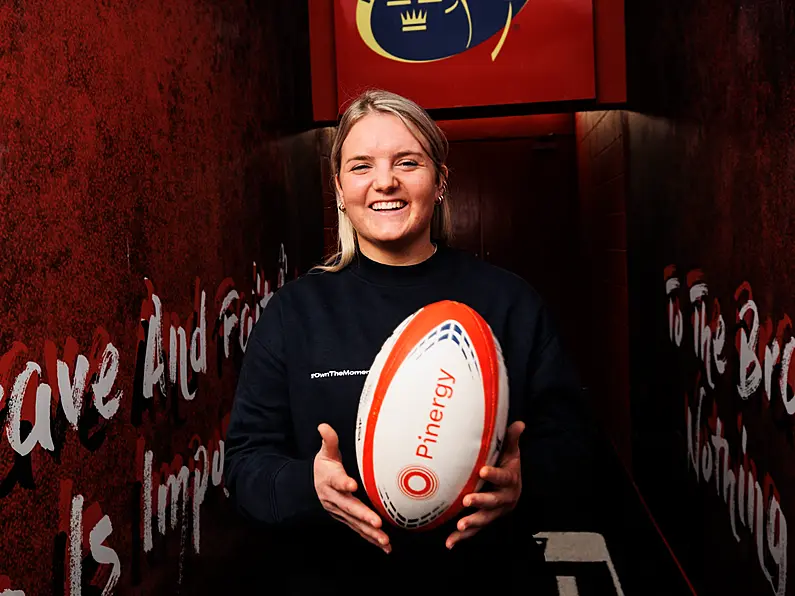Thirty years on we remember an incredible group of women who were the first to put on the Irish jersey in an international rugby match against Scotland on February 14th 1993.
The game was played at Raeburn Place in front of a crowd of over 1,000 people and was also Scotland's first international match.
Hearing from those involved has given an incredible insight into the players background, experience and their legacy which is accessible through recent features such as TG4's documentary Rugbaí na mBan: Ag Briseadh Tríd.
With the odds stacked against them due to such a small amount of clubs set up for them in Ireland and consequentially a lack of playing experience, a group of Irish players flew to Scotland and met in a local B&B the night before the game.
Remarkably, although maybe unsurprisingly, this was the first time many of the players had met each other. Each player was asked to introduce themselves by stating their name, where they were from and the position they played. No prior introduction, and no training session together. On match day, the squad ran through moves in the dressing room with their oversized jerseys on their backs before heading to the field together to set about making history.
To make the squad there was an informal 'trial' of sorts in January to before debuting the following month in February with the team being coached by Alain Rolland.
Scotland won the match 10-0 yet the connection between the two teams still runs deep to this day with players from both sides meeting up 5 years ago on their 25th anniversary to remember the historic day.
February 14th 1993 💚
30 years ago today, the first women's @IrishRugby put on their oversized jerseys and played Scotland in Raeburn Place, captained by Jill Henderson ☘️
Incredible day for those players, and inspiring to see how far Irish women's rugby come since💪 pic.twitter.com/fEmLDLCzOB— Her Sport (@HerSportDotIE) February 14, 2023
The IRFU also marked the occasion with a 25 year celebration in the Aviva where players were presented with caps in a formal ceremony, marking their achievements and contribution to Irish women's rugby.
In attendance was Ireland's first captain Jill Henderson who said “I never thought this day would come. It is more than just a reunion – this cap means everything. Rugby has always been a big part of my life.”
Henderson had been playing in the north-west of England in the early 1990s for Waterloo, and her level of experience was radically different to that of the players based in Ireland.
“In England, I was training six days a week and had been for seven years. I was playing Division One and I had a big match every weekend in the season. It was my life really.”
Along the way, she was met with some resistance from those refusing to engage or acknowledge the women's game. After being part of the Irish debut, she continued to play with Ireland over the following years, featuring in the 1994 World Cup finals. She has also lined out for Cooke, Blackrock and Old Belvedere in a successful club career.
When you consider that the first Irish men's rugby team played in 1875, the incredible milestone for the women's team debuting in 1993, almost 125 years later, perfectly encapsulates the neglect, disinterest and chauvinism that was present in society at the time.
There are historical reasons for this discrimination against women. The majority of sporting organisations, nationally and internationally, were founded between 1800 and 1900 and reflected society, prejudices and gender norms of the time.
Put simply, it was a world constructed by men, for men, and women were very much on the fringes. There was a role for women in the world, but that role did not include participating in sport. Beliefs such as the adverse affect of exercise on a woman’s ability to carry a child were commonplace. A woman's role was confined to providing as a wife and mother, and engaging in sport was seen as a waste of her time and energy, deflecting from her responsibilities.
Historically, you can not find any examples of women playing rugby as sports like rugby especially, were not perceived to be for women. It did not begin to push through until around the 1980s, particularly thanks to participation in Universities. By the early 1990s the Irish Women's Football Union (IWFU) was established with around 200 players across 10 different teams who began playing in the early 80s.
Borne out of the that, the All-Ireland Rugby League (AIL) was established in November 1992 including teams from Limerick as far as Belfast. That year, the final of that first league took place in Donnybrook with some 1,500 people attending to see Blackrock defeat UCD. Crucial to the early success of this league was support of sponsors such as Standard Life Assurance Company.
The success of Irish women's rugby was certainly not achieved overnight and it was an undoubtedly uphill battle with Ireland losing many of it's matches in the early years. Many rugby clubs around Ireland were also extremely resistant to facilitating women's involvement in the sport, which was not unique to Ireland and was common worldwide.
But it was a battle worth fighting. Outstanding players were given opportunities to showcase their talent at top level thanks the perseverance and efforts put in place to generate more interest and success in Irish rugby by those in the early years. In 2013, 20 years on since the first Irish women's rugby game, the Irish rugby team claimed a Grand Slam in the 6 Nations. This was followed by a semi-final place in the World Cup in 2014 where they beat New Zealand, and another 6 Nations Championship in 2015. Today, players are being offered professional contracts.
With highs, come lows. Last year was the only time Ireland has failed to qualify for the Women's Rugby World Cup since it first joined the competition in 1994; and it came on top of other recent disappointments, including the 7s team's failure to qualify for the Tokyo Olympics. The situation worsened when IRFU’s Director of Sevens and Women’s Rugby Anthony Eddy's "astonishingly defensive" answers at a press conference soon after were perceived by many as deflecting the blame onto the team, rather than on any lack of investment. Player Cliodhna Moloney tweeted "I could have sworn slurry spreading season was spring...I stand corrected" in response, and former player Jenny Murphy directly called Eddy "spineless."
The disconnect between what Anthony Eddy said yesterday and what former players and current player like Cliodhna say today is absolutely staggering.
When are the players finally going to be listened to? https://t.co/xfYE2DFyJF— Sinéad Kissane (@sineadkissane) November 9, 2021
After months of increasing criticism of Eddy and the IRFU as a whole, and tired of trying to make changes internally for years, 62 current and former players signed a letter to the government calling for "meaningful change" after the "historic failings" of the IRFU.
The letter to the government was likened to a similar one written to the Welsh Rugby Union in April 2021, which was signed by 123 Welsh former rugby players and called for more development of the women's game.
In August 2022, the IRFU announced that it would offer contracts for female 15s players for the first time (7s players were already being contracted). Although this was undoubtedly progress, several months later it soon emerged that the salaries offered were low (the majority starting at just €15,000 a year). Players who agreed were to be based in Abbottstown, at the Sport Ireland campus, and with the cost of living in Dublin fast becoming an epidemic, this was viewed as insufficient.
The IRFU's annual report published on November 11th 2022 revealed that the organisation's direct investment in the women's game is now €5.5m annually, an increase of €2.1m over what was budgeted previously. This number sounds less impressive when compared with the €5.9m operating surplus recorded that year (against a budgeted deficit of €4.9m). Another 1 million euro of funding was announced thereafter, with more funding being sought by the IRFU from Sport Ireland and the Government. Recommendations were put forward also such as the investment in the Interprovincial competition as a preparation for the Irish team, investment in regional centers of excellence and a revamp of the AIL that is currently "not fit for purpose". In recent weeks, the committee of the IRFU have also unanimously approved proposals to increase representation of women on it's committee to 40% by the end of 2023 (currently representation stands at about 13%).
In remarks following the release of the report, IRFU Chief Executive Kevin Potts believes the IRFU has regained the trust of players.
"I do believe we have turned a corner significantly...I'm confident, that, yeah...I'd like to think there's some trust from what we've done this year. There's definitely commitment."
"Right across the world and consistent with other unions, the women's game is an investment for the future, but it is probably the largest area of growth in our game across the world, and yes we all wanted to get to a sustainable basis in the years ahead."
Some look at the recommendations that have been put forward recently as basic and quite underwhelming - the kind of things you would already expect in a high performance programme. Demanding standards and facilities should absolutely be done, especially when we look to other countries and what high performance sport looks like for women there.
It is undoubtedly important to look back and remember how far we have come since that historic day thirty years ago. It is also important to continue to hold governing bodies, like the IRFU to account on delivering promises they have made. But it is also equally important that we look forward with positivity, and not dwell on the past.
The steps that have been taken up until now signifies a momentum which shows a bright future for Irish women's rugby with more girls and women involved than ever before.
Currently there is approximately 2,500 girls playing mini rugby (U8’s -U12’s), 4,863 youths (14-18 years old), 3,113 adults spread across 375 teams nationally, 111 schools participating and 59% of Irish rugby clubs in Ireland offering women's rugby.
There are also over 900 female coaches involved in rugby and over 25 referees.
There is some way to go but the sport is unquestionably growing fast, made possible by the financial investment as well as the time invested by those involved, past and present, including the amazing cohort that we celebrate today thirty years on.
